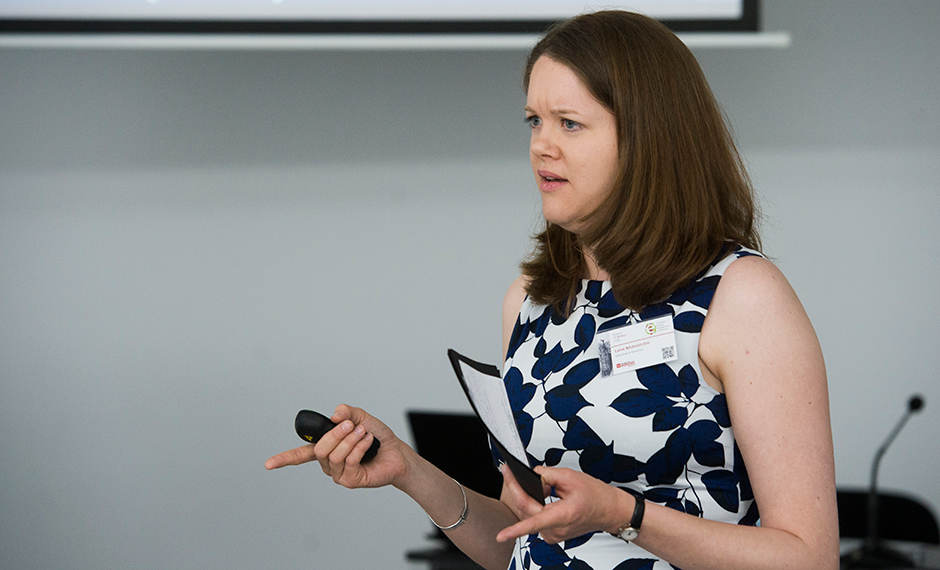When engaging the public in science communication activities, it is crucial to choose topics close to hearts of the audience. Whether the audience is interested in climate change, football or health, the topics are transdisciplinary by nature – but how transdisciplinary are the activities at science festivals?

At the annual Eusea conference, VA (Public & Science) hosted a workshop to brainstorm new, innovative activities that combine different research areas.
The European Science Engagement Conference was held in Madrid 17-18 May 2018 – two informative days of workshops, discussions and sharing of experiences, hosted by the EUSEA member Fundación para el Conocimiento madri+d
The 90 minute workshop, led by Lena Söderström from VA (Public & Science) started with inspiring examples from Leonardo Alfonsi, Psiquadro in Italy, Joseph Roche from Science Gallery in Dublin, and European Researchers’ Night in Sweden. It continued with a guided brainstorm in small groups. The goal was to leave the room with new ideas, inspiration and activities to try out and even find new collaboration partners.
After the short but intensive group discussions, the four groups each presented one idea for a new activity:
Why not talk about the importance of vaccines at a music festival? One group decided an icebreaker would be to display an Iron Lung Machine alongside artists’ performances. An exhibition about the history of polio and other diseases would have young scientists on hand to answer visitors’ questions about vaccines. A quiz about the public’s prior knowledge about vaccines and diseases would be organised, with the winner getting to meet one of the artists performing at the festival.
Why not talk about the importance of vaccines at a music festival?
“Who can spy on you?” was the topic of the activity designed by the second group. Aiming to reach people in their twenties, just finished school, the venue would be public spaces such as gyms, parks or cafés in shopping centres. Actors would ask passers-by to give out their e-mail addresses to sign up for a good cause or a free item. A few minutes later, when they entered a nearby shop, gym or café, their personal info would flash up on a screen. This would be followed by information and dialogue about the implications of digitalisation and privacy, involving people from a range of different professions, such as legal professionals, IT specialists, lawyers, psychologists and social scientists.
To reach adults that would not choose to visit a science festival, a football game might be a good place to start. Fun activities could be arranged during the interval at half-time around topics related to football, such as gambling (talking about research in areas such as statistics, physical performance, fans/hooligan culture, physics, medicine, group psychology, technology and big data). The overall message would be that science can help you to better understand things you are already interested in.
science can help you to better understand things you are already interested in.
The activity “Garden of memory” would bring together 18-30 year olds and elderly people living at nursing homes to engage in activities together. Therapists, geriatric disorders, physiologists and other expert groups could talk about the brain and how to prevent Alzheimer’s.

